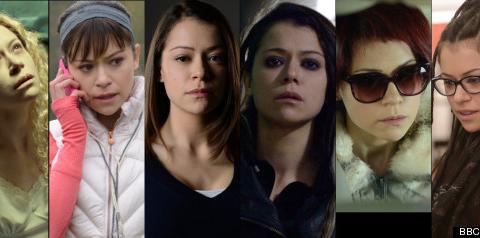
Orphan Black (BBC America)
Badass Women In Sci-fi Television
By Ash CJune 17 2019, Updated 9:59 p.m. ET
Up until a decade ago, science fiction was still a very male-dominated genre. Sci-fi novels, series, and movies very rarely feature female protagonists of power or in control of the plot. Women in sci-fi have been repressed in the male-dominated, action-oriented narratives from the 1950s to the present times. This underrepresentation of women broadcasts a misogynist reality in male fantasies and the disempowerment of women in sci-fi.
-“Feminist science fiction has brought the politics of feminism into a genre with a solid tradition of ignoring or excluding women.” — Jenny Wolmark
“Feminist science fiction has brought the politics of feminism into a genre with a solid tradition of ignoring or excluding women.” — Jenny Wolmark
Back in the more misogynistic days, women were often seen as frail, incapable, and less intellectual compared to men. This untrue bias extended to their representation in the media. Women in sci-fi, particularly, were always the princess that needed the male protagonist’s rescue. The beautiful, submissive, and alluring damsel in distress. They were sexualised and “dumbed down” to cater to the male fantasy of being the big man, the invincible hero with the superior physical strength as well as impeccable intellect. But this is a different time. Oh, how the times have changed.
The year is 2019, and little girls finally have badass heroines to look up to. First we have Marvel‘s Jessica Jones, a strong female protagonist in the Netflix Original series that is wrapping up this month. Not only is she physically strong, she is also mentally and emotionally resilient as she goes through numerous traumatic events throughout the story. In an interview, actress Krysten Ritter described her character:
-“[She is] very rough around the edges, and dry and sarcastic and a total asshole sometimes. But I think at her core she’s a good person.”
“[She is] very rough around the edges, and dry and sarcastic and a total asshole sometimes. But I think at her core she’s a good person.”
Next up, we have the lesser known Canadian series Orphan Black (2013-2017). It’s the story of a street hustler being sucked into an elaborate conspiracy drama as she discovers that she’s a clone. As the plot unravels, she teams up with her other female clones to fight against the scientists with a god complex, and the evil corporation conducting inhumane experiments on unknowing patients. As you can expect, the show is heavily dominated by a female cast; or rather, just dominated by one Tatiana Maslany, the Emmy Award-winning lead actress who played all the female clones (because, well, they’re clones, they look the same, duh), which is more than a dozen.
Orphan Black‘s female clones are very different individuals, all very strong in their own unique way. There’s the cold-blooded businesswomen Rachel, the street-smart hard-ass Sarah, the intelligent scientist Cosima, and the soccer mom Alison. By portraying the female clones to be all super capable in the different walks of life, Orphan Black represents women in sci-fi in a way that hasn’t been done before.
These new age science fiction series are one of the firsts to put women in the centre of a sci-fi plot. And in doing so, they are subverting gender norms and empowering women and little girls around the globe. However, despite the progress we have made, “women in sci-fi” is still a niche subject of discourse as the genre is still mostly based around men. As time goes by, we can only hope that there would be more fair representations of all genders in TV, so the next generation can grow up feeling empowered, knowing no bounds or limits, and they can explore their potential to the fullest extent.

